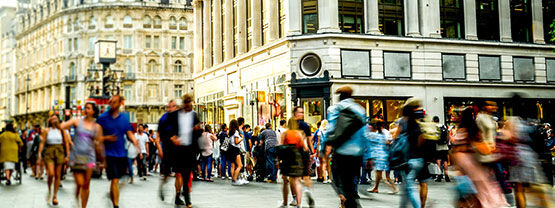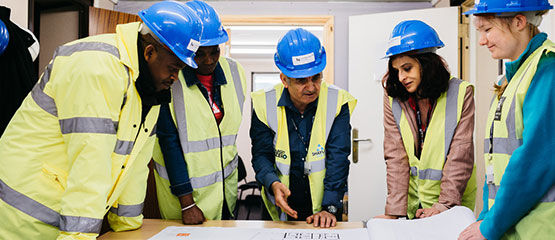Silvia Gullino, Associate Professor in City Making has created a six series podcast called 'Drivers of Change' to highlight some of the important topics in Real Estate.
The series of 'Drivers of Change' explores relevant topics such as coworking spaces, urban agriculture, community-led housing, the high street decline and youth participation in urban planning. Silvia Gullino, Associate Professor in City Making, discusses each topic with other researchers to explore how local innovative projects can generate broader impacts.
One episode will be shared each week, every Tuesday at 10am, starting on 13 April until 18 May to the Birmingham City University SoundCloud channel - you can follow the channel to stay updated.
Throughout this series, Silvia interrogates the extent to which urban planners can offer alternative, and sometimes radical, responses to wider scale challenges like climate change, housing shortage, the high street decline.
As an active researcher in urban studies, Silvia wanted to use her time during lockdown to start new research using the form of podcasts. Silvia produced this along with colleagues, Simeon Shtebunaev (Senior Lecturer in Urban Planning), Elodie Wakerley (Education Developer, Education Development Service) and Niccolo’ Granieri (Lecturer in Digital Media Technology) and two undergraduate students from the Department of the Built Environment, Conor Matthews and Archie Wootton.

We asked Silvia why she decided to create the 'Drivers of Change' podcast and what we can expect from the six-part series.
Why did you create this podcast?
I created the 'Drivers of Change' podcast series during lockdown as a project to continue my research that I could share with (and involve) my students, to explore a range of local innovative projects through conversations with a number of researchers. The series provides an opportunity to learn about challenges such as climate change and housing shortages and what we can do as planners to help. I hope that this series sparks an interest in both current planners as well as future planners too.
How did you decide what themes to focus on for each episode?
I selected challenges that urban planning is currently facing and identified a number of innovative, yet small projects, to discuss with researchers directly involved the potentialities for such projects to transcend the local and have much larger impacts.
Why do you think these topics are important?
These topics are important because they relate everyday experiences of urban spaces to the challenges of making them more sustainable. They are issues that everyone knows about and is impacted by, such as the high street, to understand how planning is working towards overcoming these challenges.
Why should people listen to this podcast?
The podcasts are purposely short. Their length is about 15-20, the time of a coffee break. I would like people to listen to this series because it provides empowering short introductions to exciting and innovative projects. For example, the creation of new community spaces to counter the decline of the British high street, the possibilities that urban gardening, from allotments to community-led gardens, offers for re-thinking the productivity of urban spaces and creating new socially sustainable networks.
Do you want to continue doing podcasts in future, if so what other topics would you like to explore?
Urban planning is such an inter-disciplinary practice and I would like future topics to reflect it more, by encouraging more conversations between different specialists within the Department for the Built Environment here at BCU, for example.






